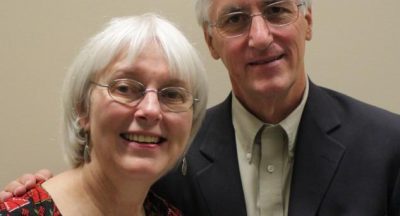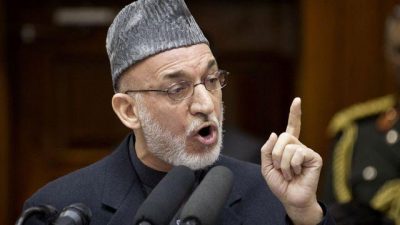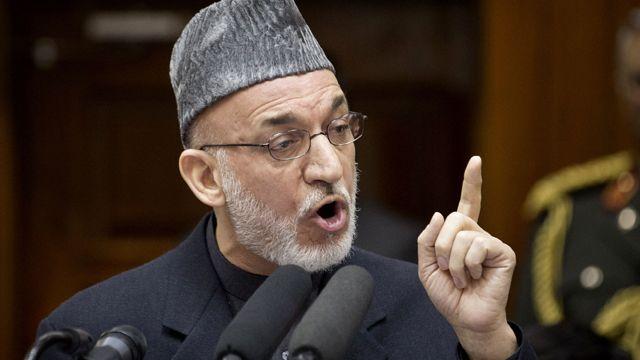So President Obama goes to Israel and, at least for a hot second, to the occupied West Bank. If anyone wondered, his speech-writing team remains top-notch in this second term. They provided him with soaring language in which he urged justice, reminding the world that the occupation can’t remain. “Palestinians have a right to be a free people in their own land,” Obama told young Israelis. “The Palestinian people’s right to self-determination and their justice must also be recognized. Put yourself in their shoes, look at the world through their eyes.” It was pretty heady stuff.

Obama visits Israel / AP photo
The refusal to acknowledge any of the immediate realities on the ground — the Wall, the checkpoints, the occupation soldiers preventing Palestinians from moving within their own land — was certainly part of Obama’s message of what U.S. policy does and does not care about. It’s all about the abstraction: atwostatesolutionwithswaps. All one word. No recognition that the two-state solution has been rendered essentially impossible by unchecked settlement expansion. No acknowledgement that the “swaps” proposed would make permanent Israel’s expropriation of the most fertile agricultural and built-up territory and virtually all of the scarce water resources of the West Bank, while allowing Palestinians to claim an extra bit of dry and unforgiving land. (Not to mention — and no one did — the vast Jordan Valley, which Israel now claims in its entirety as a military security zone which would be off-limits to Palestinian life in perpetuity.)
Talk, as they say, is cheap. (I discussed that concept and Obama’s trip more broadly in an RT interview here.) But the real message wasn’t found in Obama’s poetic words, or even in what he left out. The real message to Israel was stated explicitly, sans poetry: we’d like you to do all those things, to recognize justice, to see the world through Palestinian eyes, all of that, but, if you ignore our requests, there will be no consequences. We will continue to pay the current $30 billion in military aid, we will negotiate a new, maybe even bigger aid package when this one ends, and we will continue to protect you unconditionally at the United Nations. We have your back. There will be no consequences for your violations. Take a look at my Real News Network discussion of Obama’s trip and his message here.
OBAMA MAKES ISRAEL MAKE NICE TO TURKEY
It was interesting, however, to watch the Obama-orchestrated phone call in which Israeli Prime Minister Binyamin Netanyahu apologized — sort of — to Turkish Prime Minister Recep Erdogan for the raid on the aid ship Mavi Marmara that was trying to run the Israeli blockade of Gaza, in which Israeli commandoes killed one U.S. citizen and eight Turkish human rights activists. Israel’s refusal to apologize for the killings had led to more than two years of tension between the two countries. Now Washington had an urgent reason to resolve the Turkish-Israeli tension and get the two U.S. allies back on course: it wasn’t to get an apology for the Israeli commandos’ killing of Furkan Dogan, the U.S. citizen killed onboard the ship. It was the Syria crisis. So Obama essentially ordered Netanyahu to apologize, and the call was made from the tarmac as Obama was about to leave Israel, with the U.S. president listening in. And even though Netanyahu’s apology, for the “operational mistakes” in the raid, was limited, it was clear that Obama had succeeded in forcing the Israeli leader to do what Washington needed. It was another unspoken lesson — when Washington insists, Israel will do what is required; but Washington will not insist on behalf of the Palestinians.
There was, however, one potential quid-pro-quo in the visit, having to do with Iran. While Obama trotted out the usual AIPAC-friendly talking points about Iran’s alleged nuclear threat and about how long it might take for Iran to obtain a nuclear weapon, he did not cave in to Netanyahu’s insistence on the imminent danger and need for an even more aggressive posture towards Iran. It seemed there was a kind of unspoken position from Obama to Netanyahu: we’ll stop bothering you about the occupation and injustice towards the Palestinians, but in return you’ve got to stop pressuring us on Iran. Was this a “sell out the Palestinians in return for some kind of peace with Congress and AIPAC” kind of deal?
AND SPEAKING OF THREATS OF WAR…AGAINST OIL-RICH MIDDLE EASTERN COUNTRIES THAT DO NOT HAVE NUCLEAR WEAPONS…
We have just finished commemorating the sad, tenth anniversary of the U.S. invasion of Iraq. Sad because while the main U.S. war of occupation is over, Iraq remains ravaged by violence, split by U.S.-encouraged sectarian divisions, its social fabric shredded. Iraqi civilians continue to die, U.S. soldiers once deployed there continue to suffer from physical and mental disabilities, and U.S. taxpayers continue to pay the multi-trillion dollar bills. Working with some of the most thoughtful and strategic anti-war leaders across the country, I wrote an assessment for The Nation examining the legacies and lessons of the Iraq war, how the United States lost the war, and what lies ahead.
NPR’s San Francisco flagship station, KQED, hosted a panel with the Washington Post’s great Iraq journalist Rajiv Chandrasekaran, some still-won’t-admit-we-were-wrong war apologist, and me. Pretty interesting questions from the Bay Area community too.

Cindy and Craig Corrie
I was very privileged to join Craig and Cindy at the commemoration; one of the things I talked about was the link between Rachel’s work for human rights in Palestine and her opposition to the Iraq war. Just three days before she was killed, Rachel had joined dozens of Gaza children in Rafah’s version of the global anti-war protest of February 15, 2003. The children drew U.S. flags to symbolize their opposition, and Rachel crayoned in the names of the U.S. corporations that would profit from the looming war — Halliburton, Bechtel, and more. Cindy later wrote, “Rachel told me the activists were afraid no one would pay attention to the small Rafah protest. Like all of us who felt passionately about what was unfolding in Iraq, they wanted to be heard. Rachel’s participation and leadership in the protest in Rafah that day was an extension of the anti-war organizing she had done in Olympia prior to her departure for Palestine. She was proud that on the same day she and Gazans went to the streets on behalf of the people of Rafah and Iraq, that her friend protesting in Seattle was also carrying a sign remembering Rafah…When Rachel and other ISM members joined Palestinians in demonstrating, they were supporting and modeling the use of nonviolent forms of resistance and free speech to oppose violent attacks conducted by U.S. and Israeli militaries and an enduring, illegal occupation.”
AND THEN THERE’S THE WAR WE STILL HAVE…AND STILL HAVE TO FIGHT AGAINST

Hagel meets Karzai
Hagel’s visit showed the visible tensions with Afghan President Hamid Karzai. Karzai demanded separate national agreements between Afghanistan and any NATO member that wanted to keep troops in his country after 2014 (rather than a unified agreement with NATO). He continued to demand that U.S./NATO troops leave the universities and stop harassing Afghan students. The two biggest issues involved Washington’s longstanding but unfulfilled promise to hand over control of the huge Bagram prison to Afghan authorities, and Karzai’s demand that all U.S. troops leave Wardak province, where they and their Afghan partners stood accused of torture and murder of Afghan civilians. On Bagram, U.S. officials said sure — as long as we get to veto which prisoners you’re thinking of releasing, as long as you’re prepared to hold prisoners without any trial (like we do) — and oh by the way, as long as we keep the keys. On Wardak, the U.S. commander simply said his troops would stay in Wardak as long as they thought it necessary to do the job. The highly publicized ceremonial handover of Bagram to Afghan control was scuttled, the scheduled Hagel-Karzai joint press conference was cancelled, and Hagel returned home trying to downplay the visit altogether. It all made for some interesting conversations — including an interview I did on CCTV on the Hagel visit.
When Kerry made a surprise visit to Kabul a bit later, the mood shifted. Suddenly U.S.-Afghan relations were all good, Karzai repeatedly expressed his gratitude to, affection for, and shared goals with his Washington supporters. The Bagram handover went ahead — although the final terms remained murky. Karzai’s interest in releasing “innocent” prisoners, most likely those he believes could help start his own talks with the Taliban, may well have been put on hold to satisfy U.S. demands. And suddenly nobody was talking about withdrawing U.S. troops from Wardak. Outside of the government center in Kabul, however, popular opposition to the U.S. war was visible and growing. Protests rose against the escalating drone strikes, against the night raids by U.S. and Afghan soldiers, against the abuse of students, and against the torture that remains an active legacy of U.S. control of Bagram. Whether the corrupt and unpopular Afghan government can survive another two years of U.S. war remains unclear.
AND… PB ON THE ROAD
I’ll be speaking in Salt Lake City next week on April 3rd and 4th, at Utah Valley University, Salt Lake Community College, and the Salt Lake City Public Library. On April 6th I’ll be speaking at the Historians Against the War conference in Baltimore. And then on the 16th at Bellarmine University in Louisville, Kentucky.
So many thanks for all you do for peace and justice, for all your support for our work here at IPS as we look forward to our 50th anniversary this fall. Working to turn ideas into action linking peace, justice and the environment — we’ve all got a lot of work to do!
This first appeared in the New Internationalism Newsletter. You can subscribe for the latest updates.
